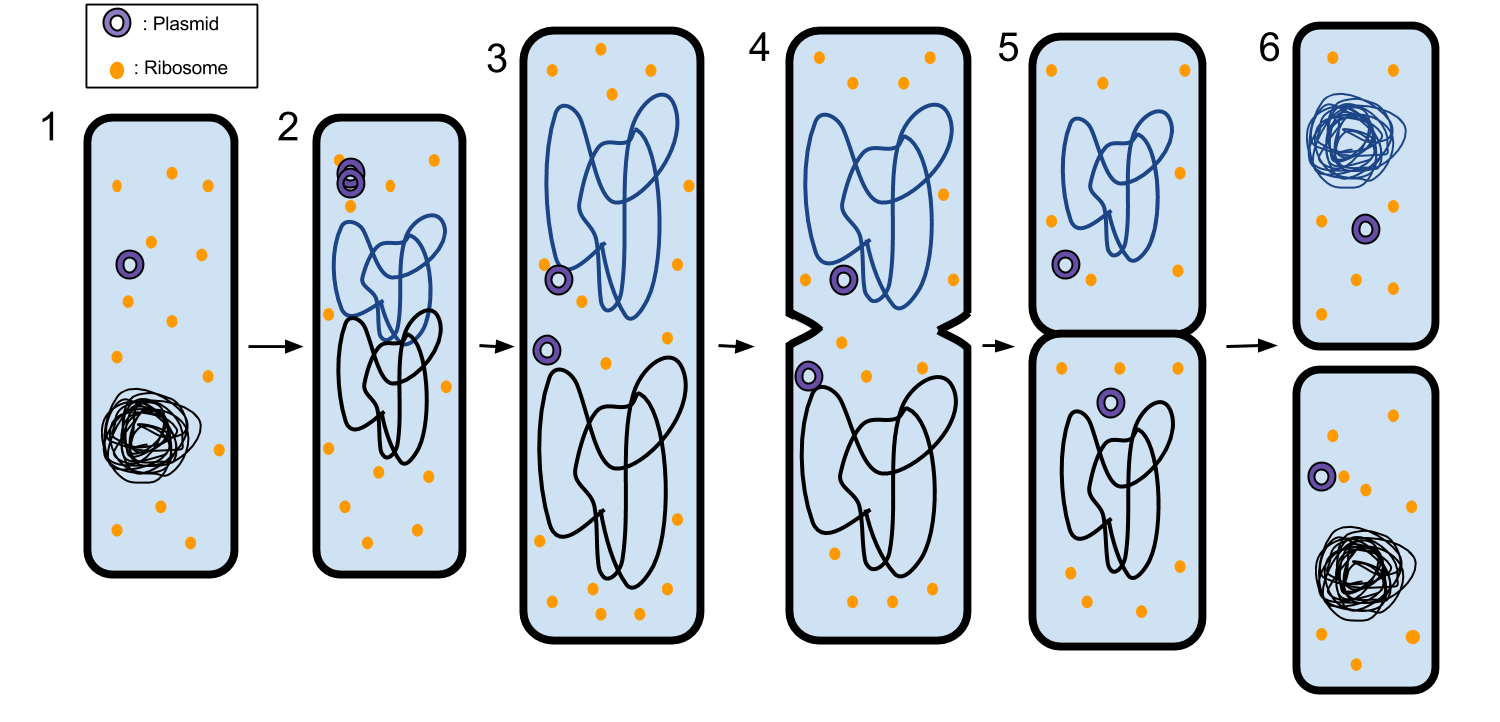
A bacterial cell undergoes binary fission every twenty minutes. Starting with a single bacterium how many bacteria will form after 3 hours?
a. 128
b. 256
c. 512
d. 1024
Answer
584.1k+ views
Hint: When cells separate by mitosis in the body of a multicellular organism, they eventually cause the organism to nurture larger or replace old, worn-out cells with new ones. Bacterial binary fission is the route that bacteria use to do cell division. Binary fission is analogous in concept to the mitosis that occurs in multicellular organisms (such as plants and animals), but its intention is different.
Complete answer:
In the case of a bacterium, though, cell division is not just a way of creating more cells for the body. Instead, it’s truly how bacteria reproduce or add more bacteria to the population.
The parent cell splits to form two daughter cells with the help of binary fission. There is a distinct bacterial cell that divides after every 20 minutes via binary fission.
Given that the bacterial cell divides for three hours, in which there are 180 minutes. The bacterial cell replicates (180/20= 9) i.e., 9 times in 3 hours. So, the full amount of numbers of bacteria produced after 3 hours are 512 cells.

Hence, the correct answer is option (C).
Note: In Bacteria, replication persists until the entire chromosome is copied and the replication enzymes assemble at the far side. Once the new chromosomes have moved to opposite cell ends and left the center of the cell, the division of the cytoplasm can happen. In this development, the membrane pinches inmost and a septum, or fresh dividing wall, creates down the middle of the cell. (Bacteria have a cell wall, so they have to redevelop this wall when they go through cell division).
Complete answer:
In the case of a bacterium, though, cell division is not just a way of creating more cells for the body. Instead, it’s truly how bacteria reproduce or add more bacteria to the population.
The parent cell splits to form two daughter cells with the help of binary fission. There is a distinct bacterial cell that divides after every 20 minutes via binary fission.
Given that the bacterial cell divides for three hours, in which there are 180 minutes. The bacterial cell replicates (180/20= 9) i.e., 9 times in 3 hours. So, the full amount of numbers of bacteria produced after 3 hours are 512 cells.

Hence, the correct answer is option (C).
Note: In Bacteria, replication persists until the entire chromosome is copied and the replication enzymes assemble at the far side. Once the new chromosomes have moved to opposite cell ends and left the center of the cell, the division of the cytoplasm can happen. In this development, the membrane pinches inmost and a septum, or fresh dividing wall, creates down the middle of the cell. (Bacteria have a cell wall, so they have to redevelop this wall when they go through cell division).
Recently Updated Pages
Master Class 11 Computer Science: Engaging Questions & Answers for Success

Master Class 11 Business Studies: Engaging Questions & Answers for Success

Master Class 11 Economics: Engaging Questions & Answers for Success

Master Class 11 English: Engaging Questions & Answers for Success

Master Class 11 Maths: Engaging Questions & Answers for Success

Master Class 11 Biology: Engaging Questions & Answers for Success

Trending doubts
One Metric ton is equal to kg A 10000 B 1000 C 100 class 11 physics CBSE

There are 720 permutations of the digits 1 2 3 4 5 class 11 maths CBSE

Discuss the various forms of bacteria class 11 biology CBSE

Draw a diagram of a plant cell and label at least eight class 11 biology CBSE

State the laws of reflection of light

Explain zero factorial class 11 maths CBSE




